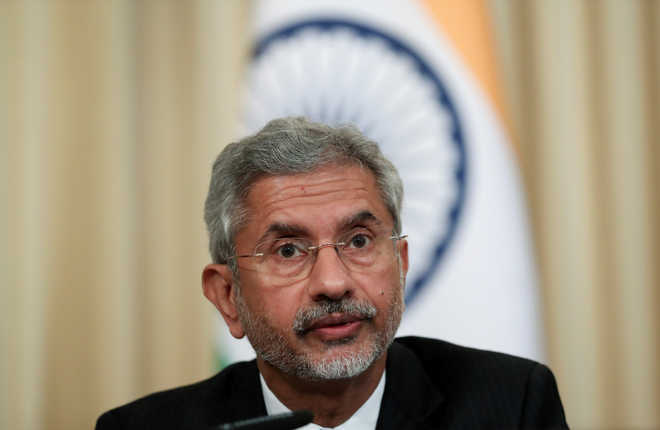New Delhi, February 23
External Affairs Minister S Jaishankar pointed out at the high-level segment of the UN Human Rights Council (UNHRC) that the most severe challenges the human rights agenda faces are from terrorism.
The High Commissioner of UN Human Rights office, Michele Bachelet, had been frequently critical of the lockdowns and Internet shutdowns in Kashmir as also the application of force against anti-CAA and farmer protests.
A torture victim and former Chilean President, Bachelet’s comments have sometimes been dismissed by the Ministry of External Affairs (MEA) as ill-informed.
Jaishankar pointed out that human rights issues are best pursued through dialogue, consultation and cooperation amongst states as well as technical assistance and capacity building.
The MEA has also in the past raised the absence of dialogue by Bachelet which, it says, has led to half-baked observations.
“Our approach to the UN Human Rights Council is guided by our spirit of engagement, dialogue and consultation,” Jaishankar observed.
The minister pressed this point by stating that violation of and gaps in implementation of human rights should be addressed with objectivity, transparency and with due respect to the principles of non-interference in internal affairs and national sovereignty.
But it is terrorism that violates the most fundamental human right — ‘the Right to Life’, he said.
“This is possible only when there is a clear realisation, including in bodies dealing with human rights, that terrorism can never be justified, nor its perpetrators ever equated with its victims,” said the minister.
Jaishankar referred to an eight-point action plan to deal with terrorism and said India will continue to work together with UNSC members and other nations to ensure its implementation.
The Indian approach, he said, is based on its own experience as an inclusive and pluralistic society and a vibrant democracy.
The Constitution has enshrined basic human rights as fundamental rights and these continue to evolve through legislation by Parliament, progressive interpretation of laws by the judiciary and active participation of civil society and citizens. 




 Driving Naari Programme launched in Chandigarh
Driving Naari Programme launched in Chandigarh






























